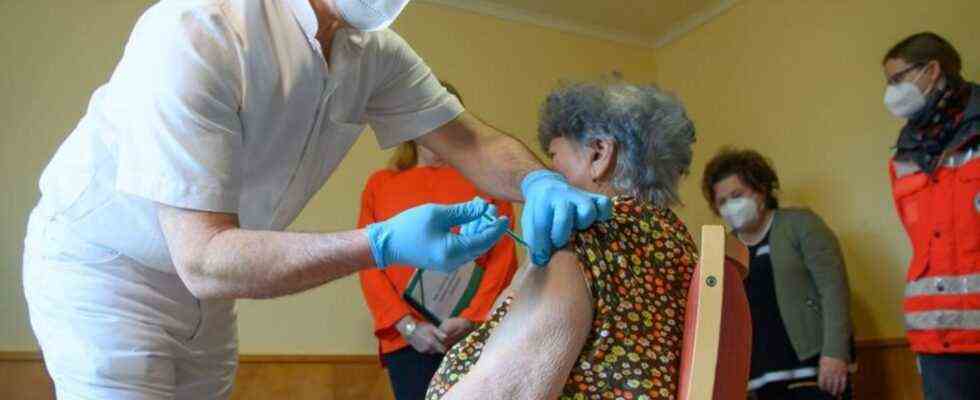Covid-19
Ethics Council advocates expansion of the corona vaccination requirement
The German Ethics Council is in favor of extending the recently decided mandatory vaccination for staff in facilities such as clinics and nursing homes to “major parts of the population”. Photo: Robert Michael / dpa-Zentralbild Pool / dpa
© dpa-infocom GmbH
The vaccination rate in Germany is too low. Should people therefore be obliged to get vaccinated against the coronavirus? A tricky question. Now the ethics council has positioned itself.
The German Ethics Council is in favor of extending the recently decided mandatory vaccination for staff in facilities such as clinics and nursing homes to “major parts of the population”.
However, this must be flanked with further measures, according to a recommendation by the majority of the independent committee that advises the federal government on ethical issues relating to the corona pandemic. In addition to nationwide vaccination offers and sufficient vaccines, the vaccine should, as far as possible, be freely chosen. Direct invitations with personalized appointments, a secure national vaccination register and understandable information are also recommended.
A total of 20 of the current 24 ethics council members voted in favor of the recommendation to expand the compulsory vaccination and four against. However, there are different views on the scope of the expansion. For example, 13 out of 20 members who are fundamentally in favor of an extension of the mandatory vaccination to all adults who could be vaccinated. Seven members are in favor of restricting this to adults who belong to Corona risk groups such as the elderly or those with previous illnesses.
Important signpost
The Greens health expert Janosch Dahmen sees the majority vote of the council as a “very important guide” for the debate and the decision on compulsory corona vaccination. Like many politicians, the Ethics Council had to revise its previous position due to the changed situation, said the member of the Bundestag of the German Press Agency. “As a society, we can only leave the pandemic behind us if we are able to learn and remain open to course corrections.” Politics loses the confidence of the vast majority especially when it turns out to be incapable of learning.
The ethics council had been asked by the federal and state governments for an assessment. The background to this is that the Bundestag will probably vote at the beginning of next year without parliamentary party specifications on a general vaccination requirement – among others, Chancellor Olaf Scholz (SPD) had spoken out in favor of this. A first limited corona vaccination obligation was already decided in mid-December: Employees in facilities with vulnerable people such as clinics and nursing homes have to prove by March 15, 2022 that they have been vaccinated or have recovered.
Crucial point for control
The Ethics Council explained that high vaccination rates are crucial in order to get into a controlled situation. An obligation to vaccinate always represents a significant impairment of legally and morally protected goods. An expansion can only be justified if it can mitigate or prevent serious negative consequences of possible future pandemic waves – such as high mortality, long-term health impairments of large parts of the population or an impending collapse of the health system .
Bundestag Vice-President Katrin Göring-Eckardt pleaded for a new regulation as soon as possible. “The Bundestag should quickly introduce a general vaccination requirement in the new year,” said the Green politician to the newspapers of the Funke media group. She invited “in January to conduct an open and transparent exchange on the implementation of a general vaccination requirement with experts from science and society across all political groups”.

